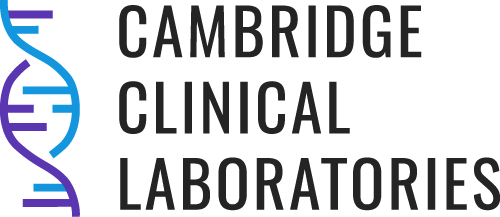
Accessible genetic testing for cancer that transforms an individual’s healthcare journey through earlier diagnosis, personalised treatments and improved outcomes.
what is hereditary genetic testing for cancer?
Our DNA is made up of many genes, which each have different functions. Each gene comes in different “versions”, called gene variants. Having different gene variants contributes to the individual differences between people, such as in appearance, skills and personalities. However, some variants of a gene increase risk of disease, including cancer. Some variants increase the risk of multiple types of cancer, as they affect the initial processes involved in a cell becoming cancerous, which is not specific to a particular tissue or organ. Other genes increase the risk of certain types of cancer, for example the BRCA1 and BRCA2 gene variants are primarily associated with breast and ovarian cancer.
If you have these variants, it doesn’t mean you will definitely get cancer. It just means that you have inherited an increased risk through your DNA. Of course, there are many environmental risk factors which further increase risk of cancer, such as smoking, UV exposure, exposure to toxic chemicals and so on. Equally, there are environmental factors which are associated with reducing the risk of cancer, such as eating a balanced diet and exercise. Overall, it is estimated that 5-10% of cancers have a genetic variant that contributed to the cancer susceptibility.
Hereditary cancer testing is used to detect these risk variants, to tell an individual whether they have an increased risk of cancer from their genetics. This empowers the individual to make changes to their lifestyle and engage in a care pathway with more frequent screening, which will enable earlier detection if cancer does develop.
who should use hereditary cancer testing?
A genetic cause of cancer is suspected when there is certain traits to a cancer, or recurring cancer seen throughout a family. This includes:
Early age of cancer onset
Multiple primary tumours
Multifocal tumour sites
Bilateral tumour appearance in paired organs
Same tumour type between relatives
Rare tumour types
Rare tumours associated with birth defects
Having any of these features of cancer in your first or second degree relatives indicates that you may have inherited a genetic variants which increase your risk of cancer. Taking a genetic test would enable you to identify risk variants and make lifestyle and screening choices accordingly. If your test does indicate an increased risk, you may want to ask family members tested too.
However, sometimes genes can mutate randomly during reproduction, meaning you could have a risk variant even though your parents don’t. Further, you may have inherited a risk variant from your parents, even though they may not have developed cancer. Therefore, we offer hereditary cancer testing to anyone over 18 years of age regardless of personal or familial cancer history.
WHAT ARE THE BENEFITS OF HEREDITARY CANCER TESTING?
—> Detect genetic variants associated with a predisposition to certain cancers
—> Access to genetic counselling to explain test results, associated implications and support networks
—> Identification of available risk management programmes and screening programmes
—> Reduce the risk of developing associated cancers and aid early cancer detection
—> Enables patients and family members to make informed choices
what hereditary testing do we offer?
Comprehensive Hereditary Cancer Testing Panel (31 genes)
Hereditary Breast Cancer Panel
Hereditary Breast and Gynaecological Cancer Panel
Hereditary Prostate Cancer Panel
Hereditary Colorectal Cancer (including Lynch syndrome) Panel
Hereditary Melanoma Cancer Panel
Hereditary Pancreatic Cancer Panel
Full information about each gene in the panels is available here.
All tests are done from a saliva sample.
what do the results mean?
The report issued will contain all the actionable results from the hereditary cancer panel. If a genetic variant is found, the report will provide the impact, implications, and recommended actions which will be fully explained to patients via the genetic counselling process. Our genetic counsellor will also discuss health implications for patients and their families.
If no clinically significant variant is found, the report will clearly state this.
To view an example report, click here.
You will be offered a consultation with a genetic counsellor following your hereditary cancer test, who will be able to fully explain the results and implications.
how to access hereditary cancer testing
Via a private GP/consultant
You can request any private consultant or GP to contact us to organise a hereditary cancer screening test for you.
Mans Matters Clinic, Knightsbridge - https://www.mansmatters.co.uk/
Via an online provider
You can order a hereditary cancer test through an online provider. A saliva collection kit will be sent to you, which you then return in the pre-paid return package. Your results will be sent via email.
Remedi Health, Winchester - https://remedihealth.co/ (by request)
E Shop Health - https://eshophealth.co.uk/lung-cancer-screening-test.html (by request)

